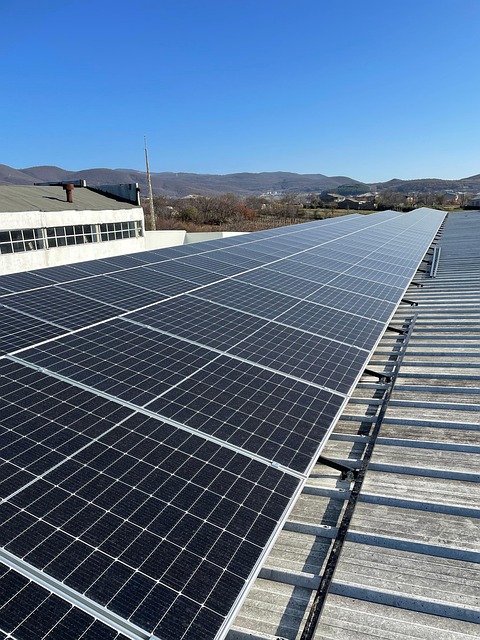Innovative commercial solar panels offer businesses a powerful way to cut energy costs while supporting sustainability goals. By choosing the right system size and installation, companies can boost efficiency and access government incentives that improve return on investment. Understanding available technologies and real-world benefits helps businesses make informed decisions that drive long-term growth and environmental responsibility.
Introduction to Commercial Solar Panels and Their Benefits
Commercial Solar systems are tailored solutions designed to meet the energy needs of businesses, offering a sustainable approach to reduce operational costs. These systems harness sunlight to generate electricity, specifically optimized for commercial premises, such as warehouses, retail stores, and office buildings.
Also to read : Revitalize your home with expert carpet cleaning in orpington
One of the primary advantages of Commercial Solar is its cost-effectiveness. Business owners benefit from significant energy savings, often offsetting the installation costs within a few years. For example, a typical 2 kW system can save over £4,595 annually on electricity, with payback periods generally ranging from 4 to 5 years. Such savings are pivotal, especially amid rising grid electricity prices, which can increase two to threefold, making onsite solar generation a financially wise decision.
Beyond financial gains, Commercial Solar supports corporate sustainability and environmental goals. Installing solar panels reduces carbon footprints by offsetting approximately 5 grams of CO2 per kilowatt-hour produced. This environmental benefit enhances corporate reputation, demonstrating a commitment to sustainable practices. Additionally, renewable solar energy for enterprises can align with broader corporate social responsibility strategies, appealing to environmentally conscious consumers and partners.
Also to read : Transform your space with expert carpet cleaning London
The investment in commercial solar also provides energy independence. Businesses shield themselves from fluctuating electricity tariffs by producing their own power. Technologies such as solar batteries, while not always cost-effective presently, can add backup power during outages, enhancing reliability. Some companies even generate additional income by selling excess electricity via mechanisms like Power Purchase Agreements (PPAs) or capacity markets.
Cost considerations include system size, roof suitability, and geographic location, influencing total expenses and long-term ROI. Installation costs incorporate panels, inverters, mounting systems, and energy management components. Maintenance is minimal, typically costing between £100 and £200 annually, with insurance premiums adding up to £20 monthly.
While government grants specific to commercial solar are limited, benefits such as reduced VAT and various incentive schemes can lessen upfront costs. Larger systems benefit from economies of scale, resulting in lower per-unit prices, which enhances ROI and overall project value.
In summary, businesses adopting Commercial Solar enjoy long-term savings, environmental benefits, and increased energy security. With advances in technology and decreasing costs, commercial solar is now a practical and profitable transition for many enterprises seeking sustainability and resilience in their energy strategies.
System Types and Design for Business Applications
Commercial solar energy systems are engineered to suit varied business environments, maximizing efficiency and return on investment. The three main types rooftop, ground-mounted, and hybrid commercial solar power solutions each cater to specific site needs, building designs, and available space.
Rooftop installations dominate in urban commercial environments. These business solar installations mount panels directly to existing company building roofs, minimizing land use and making use of available real estate. Rooftop commercial solar electricity generation is particularly suitable for office complexes and warehouses, as they provide ample surface area and steady sunlight exposure.
Ground-mounted commercial solar energy systems are optimal for enterprises with adjacent land. These scalable commercial solar installations allow for larger arrays and easier maintenance access. For manufacturing plants or sites with expansive grounds, ground-mounted commercial solar power solutions can address high energy requirements without compromising operative space inside the facility.
Hybrid systems offer a blend of rooftop and ground-mounted panels, providing flexibility for businesses seeking to maximize solar energy for enterprises across varied structures. By combining installation types, companies can fine-tune solar system design for businesses to match fluctuating energy loads, operational shifts, or planned expansions, ensuring energy management in commercial solar installations remains seamless.
Customization is pivotal in commercial solar project planning. System design adapts to roof size, orientation, shading, and building electrical infrastructure. For example, integrating commercial solar battery storage solutions offers backup and helps manage energy generated outside peak sunlight hours. Smart solar systems for commercial properties allow real-time commercial solar power monitoring, essential for optimizing solar panel energy savings for businesses and tracking commercial solar ROI calculations.
Recent technological innovations like advanced inverters and high-efficiency PV cells support the performance and reliability of modern commercial solar installations. Innovations such as bifacial panels, smart monitoring, and adaptive mounting improve commercial solar panel efficiency, supporting energy independence for businesses using solar and maximizing long-term savings.
Effective solar system design for businesses factors in projected energy use, scalability, and available sunlight, ensuring each enterprise receives tailored commercial solar power solutions. These elements underpin the environmental benefits of commercial solar, guaranteeing businesses a practical route to reducing energy bills and boosting sustainability credentials through sustainable energy solutions for businesses.
Costs, Investment Analysis, and Financial Incentives
Commercial solar project cost varies according to system size, energy needs, and installation complexity. For small-scale business solar installations typically around 2 kW to 5 kW total costs fall between £16,000 and £60,000. Larger solar electricity for companies, such as 100 kWp systems (225 panels), often range from £75,000 to £100,000, with even greater commercial solar electricity generation systems nearing £200,000 for 200 kWp. These costs encompass panels, inverters, mounting equipment, and system design for businesses, with panels and inverters making up the largest proportion.
Upfront cost of business solar power is balanced by long-term operational savings and the nature of commercial solar power solutions aligning with peak daytime demand. Maintenance outlays are usually low annual expenses between £100 and £200 while insurance coverage may add an extra £10–£20 a month or a one-time fee up to £1,600 for larger commercial solar panel installations.
Return on investment, a central concern in commercial solar investment analysis, is robust: most businesses achieve solar power payback period for companies in 3-5 years, supported by annual savings of £4,595 to £11,895, depending on system capacity. For example, investment in a 2 kW system could yield an ROI between 15% and 28%. As system scale increases, the commercial solar ROI calculations improve, delivering heightened energy management for commercial solar installations and further optimizing long-term savings.
Commercial solar financing options are a major enabler, including business solar panel leasing, power purchase agreements, and tailored commercial solar incentives. While government grants for commercial solar and commercial solar rebate programs are currently limited, reduced 0% VAT on solar technology for commercial rooftops directly lowers the initial outlay. Many businesses also make use of solar tax credits for businesses and renewable energy grants for companies where available. These financial incentives, alongside VAT reductions, make the commercial solar project cost more approachable and attractive.
Experience in the UK demonstrates that solar PV provides electricity at 4-5p per kWh, far below current grid rates of 20–25p per kWh. This gap supports energy independence for businesses using solar and makes smart solar systems for commercial properties increasingly popular. Businesses, through optimized solar panel integration in commercial buildings, realize energy savings, reduced exposure to market volatility, and gain opportunities to sell excess solar energy for additional revenue.
In sum, the upfront cost of business solar power is often outweighed by sustainable energy solutions for businesses, including long-term energy bill reductions, environmental benefits, and improved corporate standing. These dynamics are reshaping the commercial solar power landscape, with UK companies leveraging practical incentives for more predictable and resilient energy futures.











